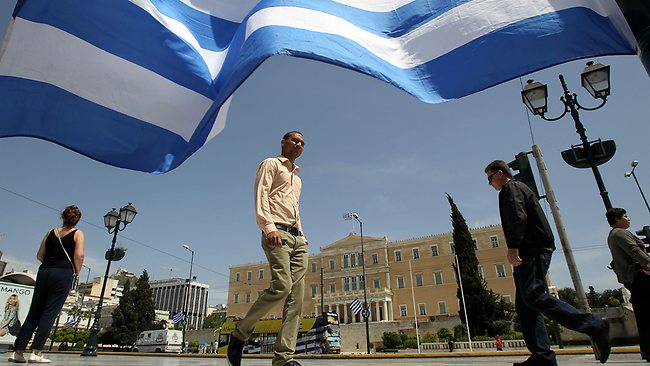
The polls have opened this morning in Greece for crucial elections which could determine the country’s future in the eurozone.
The main contenders, the right-wing New Democracy and left-wing Syriza, are at odds over whether broadly to stick with the tough EU bailout deal, or reject it and boost social spending.
Opinion polls are banned for two weeks before voting but unofficial polls say the result is too close to call.
EU leaders say if Greece rejects the bailout, it may have to leave the euro.
The poll, the second in six weeks, was called after a vote on 6 May proved inconclusive.
Sunday’s vote is being watched around the world, amid fears that a Greek exit from the euro could spread contagion to other eurozone members and send turmoil throughout the global economy.
Tough austerity measures were attached to the two international bailouts awarded to Greece, an initial package worth 110 billion Euros ($138 billion) in 2010, then a follow-up last year worth 130 billion Euros.
Many Greeks are unhappy with the conditions attached to deals which have been keeping Greece from bankruptcy and all but one of the parties standing for election have promised some degree of renegotiation of the terms.

In remarks quoted by the Reuters news agency a few hours before polls opened, the head of the Organization for Economic Co-operation and Development Angel Gurria suggested that the next Greek government should be given a chance to revisit the bailout conditions.
“If that is the condition presented for Greece to stay [in the eurozone] and then move on, I would say it is probably something that should be attempted,” he was quoted as saying.
But Germany, which has the eurozone’s most powerful economy, insists Greece, like other member states which have received international bailouts, must abide by the austerity conditions.
On the eve of the vote, Chancellor Angela Merkel said: “It is extremely important that tomorrow’s Greek elections lead to a result in which those who form the government say, ‘Yes, we want to keep to our commitments.'”
Like Angel Gurria, the German chancellor and several other European leaders will be attending the G20 summit in the Mexican resort of Los Cabos on Monday, which is set to be dominated by the eurozone crisis and the aftermath of the election.
The head of New Democracy, Antonis Samaras, told supporters on Friday that he would lead the country out of the financial crisis, while staying in the eurozone.
He broadly accepts Greece’s international bailout, but says he will renegotiate the terms of the agreement to seek a better deal for Greeks.
“We will exit the crisis; we will not exit the euro. We will not let anyone take us out of Europe,” Antonis Samaras said.
The youthful head of Syriza, Alexis Tsipras, rejects the bailout, but wants Greece to stay in the eurozone, saying a bailout is possible without the kind of drastic cuts demanded of Greece.
“Brussels expect us, we are coming on Monday to negotiate over people’s rights, to cancel the bailout,” he told a final rally on Thursday.
Greeks were celebrating hours before the polls opened, after their national football team qualified for the quarter finals of Euro 2012 with a surprise 1-0 win over Russia.
“We are proud that we gave the people back home some joy and a break from their problems – even for a short while,” striker Georgios Samaras said.
The Kathimerini website noted that Greeks had few reasons to feel national pride at the moment, but sport had provided them with plenty of it. The victory could lead to a quarter-final tie against Germany.
[youtube jeEZAY5E_ys]